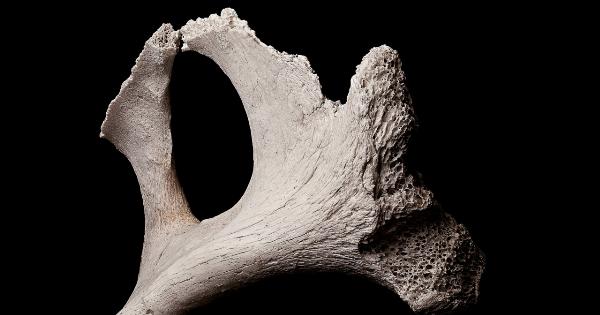Diabetes is a chronic condition characterized by impaired insulin production or inadequate insulin utilization by the body. It affects millions of people worldwide and is associated with various complications and comorbidities.
One aspect often overlooked is the impact of diabetes on bone metabolism and overall bone health.
The Effects of Diabetes on Bone Health
Studies have shown a clear association between diabetes and the increased risk of developing osteoporosis, a condition characterized by weak and brittle bones.
People with diabetes have a higher likelihood of experiencing bone fractures, especially in the hip and spine. These fractures can significantly impact an individual’s quality of life and overall health.
The exact mechanism linking diabetes to poor bone health is not yet fully understood. However, several factors contribute to this relationship:.
1. Abnormal Glucose Control:
Elevated blood sugar levels, a hallmark of diabetes, can interfere with the body’s ability to build and maintain healthy bone tissue.
High glucose levels have been shown to impair the activity of osteoblasts, the cells responsible for bone formation. Additionally, diabetes-related hyperglycemia can activate osteoclasts, the cells responsible for bone resorption or breakdown, leading to an imbalance in bone remodeling.
2. Hormonal Disruptions:
Insulin resistance, a hallmark of type 2 diabetes, can disrupt the delicate hormonal balance necessary for maintaining bone health. Insulin not only regulates blood sugar levels but also plays a critical role in bone metabolism.
Reduced insulin signaling can lead to decreased osteoblast function and increased osteoclast activity, negatively affecting bone strength and structure.
3. Chronic Inflammation:
Diabetes is associated with chronic low-grade inflammation throughout the body. This inflammation can directly affect bone health, impairing bone turnover and leading to accelerated bone loss.
The Importance of Managing Blood Sugar Levels
Proper management of blood sugar levels is crucial for mitigating the negative impact of diabetes on bone metabolism. Controlling blood sugar can help prevent or delay the onset of complications associated with diabetes, including bone-related issues.
Here are some strategies to maintain optimal blood sugar levels:.
1. Medication:
Follow your healthcare professional’s guidance and take prescribed medications as directed. These may include insulin injections or oral medications that help control blood sugar levels.
Adhering to the prescribed medication regimen is vital for effectively managing diabetes and protecting bone health.
2. Physical Activity:
Engaging in regular physical activity benefits both diabetes management and bone health. Exercise helps lower blood sugar levels, improves insulin sensitivity, and enhances bone density and strength.
Aim for a combination of cardiovascular exercises, resistance training, and weight-bearing activities like walking or dancing to promote optimal bone metabolism.
3. Balanced Diet:
A well-balanced diet with a focus on nutrient-dense foods is essential for optimal blood sugar control and bone health. Incorporate plenty of fruits, vegetables, whole grains, lean proteins, and healthy fats into your meals.
Limit sugary and processed foods that can spike blood sugar levels and negatively impact bone health.
Ensure an adequate intake of calcium and vitamin D, as these nutrients play a vital role in maintaining bone density and strength. Good sources of calcium include dairy products, leafy greens, and fortified foods.
Vitamin D can be synthesized by the body through exposure to sunlight, or obtained from foods such as fatty fish, egg yolks, and fortified products.
4. Regular Monitoring:
Regular monitoring of blood sugar levels and routine check-ups with healthcare professionals are crucial for managing diabetes effectively.
Seeking medical advice allows for timely adjustments in treatment plans, ensuring better glycemic control and reducing the risk of complications, including those related to bone health.
Additional Considerations
It is important to note that each individual’s experience with diabetes and its impact on bone metabolism may vary.
Factors such as age, gender, duration of diabetes, and overall health status can influence the severity of bone-related complications.
Consulting with a healthcare professional, such as an endocrinologist or a diabetes specialist, can provide personalized guidance and recommendations based on your specific circumstances.
They can assess bone health through bone mineral density tests and offer advice on lifestyle modifications or appropriate medications to protect bone health.
Remember, managing diabetes effectively involves a holistic approach that prioritizes blood sugar control, cardiovascular health, and overall wellness.
By staying proactive and taking steps to maintain bone health, individuals with diabetes can reduce the risk of bone complications and enjoy a better quality of life.































